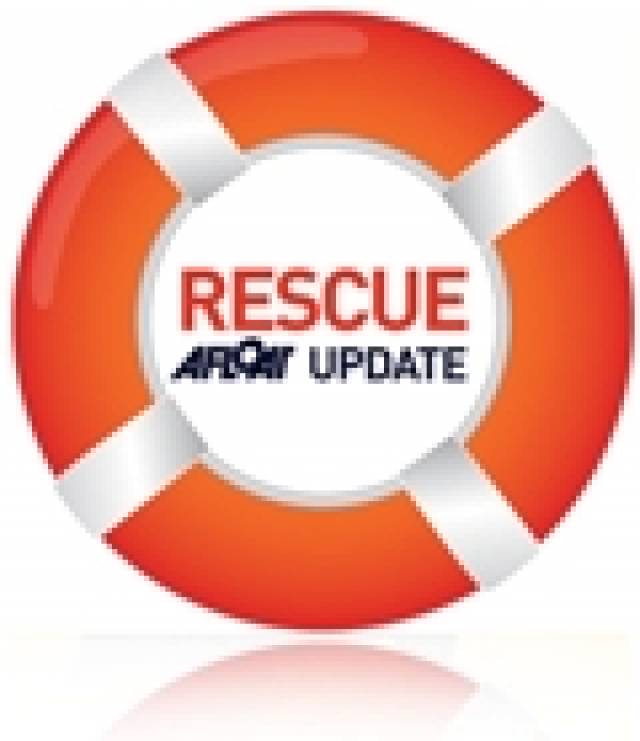#safetyatsea – Last Thursday (April 16) the Department of Transport published its Maritime Safety Strategy, resulting from the "Sea Change" consultation last year. By chance this coincided exactly with our publication of the ICC's independent analysis of the Marine Casualty Investigation Board reports which form the background to the programme. Norman Kean has now reviewed the latest proposals.
The new Maritime Safety Strategy contains much sensible encouragement, and also 33 proposals for action by the Irish Maritime Administration, under five headings. These include:
• "Intensification of efforts to promote maritime safety awareness through a process of information and communication, and the promotion of more effective communication between key stakeholders"
• "An appropriate regulatory regime for the seaworthiness of vessels and craft and the competency of operators and/or crew"
• "Building on the current enforcement regime."
What does this mean for leisure sailors? Under the Information and Communication heading are some sensible proposals, such as widening the membership of the Marine Safety Working Group, organising an annual maritime safety conference to be open to the public, and addressing children and young people through the education system. This goes some way to recognizing the fact that the people most at risk are not connected to the established organization of sailing clubs and training systems. Lack of awareness is the biggest killer of all.
"Appropriate regulatory regime" translates into the intent to update the Code of Practice for Safe Operation of Recreational Craft, starting in 2016. It is to be hoped that this will be done in a proportionate and well-informed manner, and that the word "should" in respect of things like carriage of equipment does not too often morph into "must". Perish the thought that we might be required by law to submit our boats to annual Government inspection, that we should be compelled on pain of prosecution to report every single arrival and departure to Coast Guards or Harbourmasters, that we might be forced to transmit AIS signals all the time on pain of a fine. All those and many more have been suggested in submissions at the consultation stage of this process. This must not be the thin end of the wedge. Transmitting AIS is undoubtedly a good idea in busy waters, but the accident statistics don't support making it compulsory. We do not need, and we certainly do not want, a Big Brother regime, and the absence of any explicit proposals in that direction is to be welcomed.
Starting in 2017, jet skis and many small speedboats will have to be registered, as defined in the new Registration of Ships Bill, and it appears that the timeline for a new voluntary small craft register will start in 2018. This is far too late. The lack of such a facility for the next three years will leave many owners with no choice but to flag out to other EU states, to avoid facing voyage restrictions and having Irish yachts, at present abroad, put at risk of being impounded for lack of ship's papers.
But it begs the question, what does all that have to do with safety? Might the mention of registration here be a step in the direction of inspection - and ultimately taxation?
A new focus is proposed on more rigorous enforcement of existing legal requirements, with extension of on-the-spot fines for breaches of lifejacket laws quoted. That particular example is common sense and should be applauded by all responsible sailors. The great majority of recreational craft fatalities occur in small open boats and the majority of casualties are not wearing lifejackets when they should be. Conspicuous enforcement would get the attention of those most at risk. Last summer we came across a speedboat grossly overloaded with eleven people aboard; none of the five adults was wearing a lifejacket. If the skipper had been met on the pontoon by a couple of burly Guards who promptly relieved him of several hundred euro, the word might get round and the message might get through. But there must be no mission creep. I was once, at the helm, accosted by a Coast Guard crew who asked me, none too gently, where my lifejacket was, to which I replied that it was safely in its locker, that this vessel was 16 metres in length and perhaps they would care to read their own rules.
Under "Data and Evaluation" it is proposed to commission a baseline study of attitudes to maritime safety. The sailing clubs of Ireland need to be proactive in taking part in that. In respect of cruising sailors, the RNLI is currently doing exactly the same thing, and we must hope that the Maritime Administration takes the results of that study fully into account. Despite the rising trend in callouts to recreational craft, the RNLI continues to be firmly in favour of education over compulsion.
































































